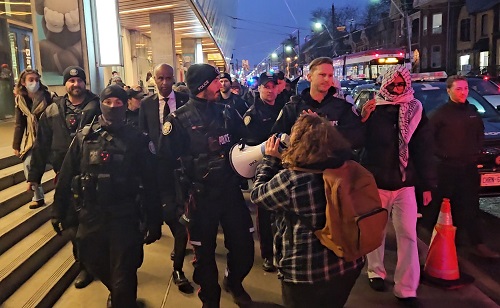Threats against politicians have become “increasingly normalized”
TORONTO – Threats against politicians are becoming “normal” in Canada too, due to extremist narratives fueled by disinformation or fake news: this is what emerges from a report prepared by a federal task force established in 2019 to protect the election process from foreign interference and including representatives from the Canadian Security Intelligence Service, the RCMP, Global Affairs Canada and the Communications Security Establishment, Canada’s cyberespionage agency.
According to the report, Canada’s violent extremist landscape is characterized by the proliferation of conspiracy theories, a growing lack of trust in the integrity of the state and increased political polarization. “Violent rhetoric routinely fixates on elected officials — with particular hostility towards high-profile women” says the report, which was obtained and published by The Canadian Press.
The task force assessed the possible threat posed by violent extremism driven by politics, religion and ideology: protests can be fueled by elements such as xenophobia, gender issues or general anti-government sentiment. In the latter case in particular, numerous threats to the prime minister and other parliamentarians were reported to the RCMP and assessed as “dangerous”: approximately 20% of the threats to the prime minister and 13% of those against parliamentarians among September 2021 and mid-2023 have in fact reached the RCMP’s national security threshold.
While extremist narratives and conspiracy theories do not usually manifest themselves as an act of serious violence, “they have the potential to negatively impact the fabric of Canadian society” says the task force report, which says anti-authority extremists they “almost certainly exploited” social media posts regarding foreign interference in Canadian elections to “reinforce pre-existing narratives about the inherent corruption of government institutions in Canada”.
Political parties, candidates and their staffs also continue to be targeted by cyber threat activities, which can take the form of online espionage, disinformation or fabricated videos known as deepfakes. Overall, the task force says “sophisticated, pervasive and persistent” interference efforts pose a serious threat to Canada’s national security and the integrity of its democratic institutions. And while foreign interference activities are “part of normal patterns of behavior” for some foreign states, Canada is a high-priority target for foreign interference due to its role in major global alliances and bodies, and enjoys a “robust international reputation” that can be used or co-opted to help legitimize the interests of foreign states. Additionally, Canada’s advanced, knowledge-based economy attracts foreign states seeking to develop their scientific and technological expertise, according to the report. Finally, Canada is home to large diaspora communities, which some foreign states seek to monitor, control, or use to advance their own strategic objectives.



